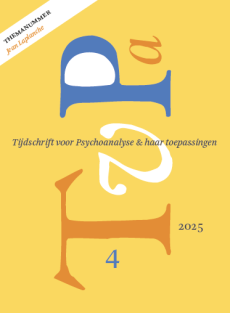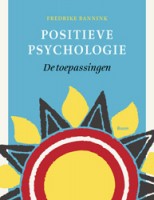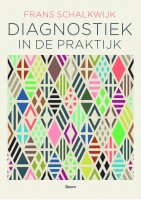Gedesorganiseerde gehechtheid
Summary
Disorganised attachment From infant research to treatment
Disorganised attachment is a sequel of disrupted mother-infant communication and becomes a disturbed implicit relational model. In the psychoanalytic treatment of patients with these kinds of histories the classic model of defence, conflict and interpretation does not effect sufficient changes. The intersubjective approach of the Boston Change Process Group and Beebe and Lachmans approach of self- and interactive regulation expand the possibility of changing the implicit relational model in an ongoing dialogue and a process of hit, miss and repair.
Literatuur
- BCPSG (2002). Explicating the implicit: the local level and the microprocessors of change in the analytic situation. International Journal of Psychoanalysis, 83, 1051-1062.
- BCPSG (2005). The something more than interpretation revisited: sloppiness and co-creativity in the psychoanalytic encounter. Journal of the American Psychoanalytic Association, 53, 693- 729.
- BCPSG (2007). The foundational level of psychodynamic meaning: implicit process in relation to conflict, defense and the dynamic unconscious. International Journal of Psychoanalysis, 88, 843-860.
- Beebe, B. & Lachman, F. (2002). Infant research and adult treatment. New York: Analytic Press.
- Carlson, E.A. (1998). A prospective longitudinal study of disorganized /disoriented attachment. Child Development, 69, 1970-1979.
- Hesse, E. & Main, M. (1999). Secondgeneration effects of unresolved trauma in non-maltreating parents: dissociated, frightened and threatening parental behaviour. Psychoanalytic Inquiry, 19, 481-540.
- Liotti, G. (1992). Disorganized /disoriented attachment in the etiology of the dissociative disorders. Dissociation, 5, 196-204.
- Liotti, G. (1995). Disorganized / disoriented attachment in the psychotherapy of the dissociative disorders. In S. Goldberg, R. Muir & J. Kerr (red.), Attachment theory: social, developmental and clinical perspectives (p. 343-363). Hillsdale NJ: Analytic Press.
- Liotti, G.T. (1999). Disorganization of attachment as a model for understanding dissociative psychopathology. In J. Solomon & C. George (red.), Attachment disorganization (p. 291-317). New York: Guilford Press.
- Lyons-Ruth, K. (2002). Dissociation and the parent-infant dialogue: a longitudinal perspective from attachment research. Journal of the American Psychoanalytic Association, 51, 884- 911.
- Lyons-Ruth, K., Dutra, L., Schuder, M. & Bianchi, I. (2006). From infant attachment disorganization to adult dissociation: relational adaptations or traumatic experience? Psychiatric Clinics of North America, 29, 63-86.
- Lyons-Ruth, K. & Spielman, E. (2004). Disorganized infant attachment strategies and helpless-fearful profiles of parenting: integrating attachment research with clinical intervention. Infant Mental Health Journal, 25, 318-335.
- Lyons-Ruth, K., Yellin, C., Melnick, S. & Atwood, G. (2003). Childhood experience of trauma and loss have different relations to maternal unresolved and Hostile Helpless states of mind on the aai. Attachment and human development, 5, 330-352.
- Lyons-Ruth, K., Yellin, C., Melnick, S. & Atwood, G. (2005). Expanding the concept of unresolved mental states: hostile/helpless states on the Adults Attachment Interview are associated with disrupted mother-infant communication and infant disorganisation. Development and Psychopathology, 17, 1-23.
- Ogawa, J.R., Sroufe, L.A, Weinfield, N.S. e. a. (1997). Development and the fragmented self: longitudinal study of dissociative symptomatology in a nonclinical sample. Development and Psychopathology, 9, 855-879.
- Stern, D. (1998). The process of therapeutic change: involving implicit knowledge Some implications of developmental observations for adult psychotherapy. Infant Mental Health Journal, 19, 300-308.
- Tronick, E. (1989). Emotions and emotional communication in infants. American Psychologist, 44,112-119.
- Tronick, E. (1998a). Interventions that effect change in psychotherapy: a model based on infant research. Infant Mental Health Journal, 19, 277-279.
- Tronick, E. (1998b). Dyadically expanded states of consciousness and the process of therapeutic change. Infant Mental Health Journal, 19, 290-299.
- IJzendoorn, M. van, Schuengel, C. & Bakermans-Kranenburg, M. (1999). Disorganized attachment in early childhood. Meta-analysis of precursors, concomitants and sequelae. Development and Psychopathology, 11, 225-249.
 © 2009-2026 Uitgeverij Boom Amsterdam
© 2009-2026 Uitgeverij Boom Amsterdam
ISSN 1382-516x
De artikelen uit de (online)tijdschriften van Uitgeverij Boom zijn auteursrechtelijk beschermd. U kunt er natuurlijk uit citeren (voorzien van een bronvermelding) maar voor reproductie in welke vorm dan ook moet toestemming aan de uitgever worden gevraagd:
Behoudens de in of krachtens de Auteurswet van 1912 gestelde uitzonderingen mag niets uit deze uitgave worden verveelvoudigd, opgeslagen in een geautomatiseerd gegevensbestand, of openbaar gemaakt, in enige vorm of op enige wijze, hetzij elektronisch, mechanisch door fotokopieën, opnamen of enig andere manier, zonder voorafgaande schriftelijke toestemming van de uitgever.
Voor zover het maken van kopieën uit deze uitgave is toegestaan op grond van artikelen 16h t/m 16m Auteurswet 1912 jo. Besluit van 27 november 2002, Stb 575, dient men de daarvoor wettelijk verschuldigde vergoeding te voldoen aan de Stichting Reprorecht te Hoofddorp (postbus 3060, 2130 KB, www.reprorecht.nl) of contact op te nemen met de uitgever voor het treffen van een rechtstreekse regeling in de zin van art. 16l, vijfde lid, Auteurswet 1912.
Voor het overnemen van gedeelte(n) uit deze uitgave in bloemlezingen, readers en andere compilatiewerken (artikel 16, Auteurswet 1912) kan men zich wenden tot de Stichting PRO (Stichting Publicatie- en Reproductierechten, postbus 3060, 2130 KB Hoofddorp, www.cedar.nl/pro).
No part of this book may be reproduced in any way whatsoever without the written permission of the publisher.
Nieuwsbrief Boom Psychologie
Meld u nu aan en ontvang maandelijks de Boom Psychologie nieuwsbrief met aantrekkelijke aanbiedingen en de nieuwe uitgaven.
Aanmelden


